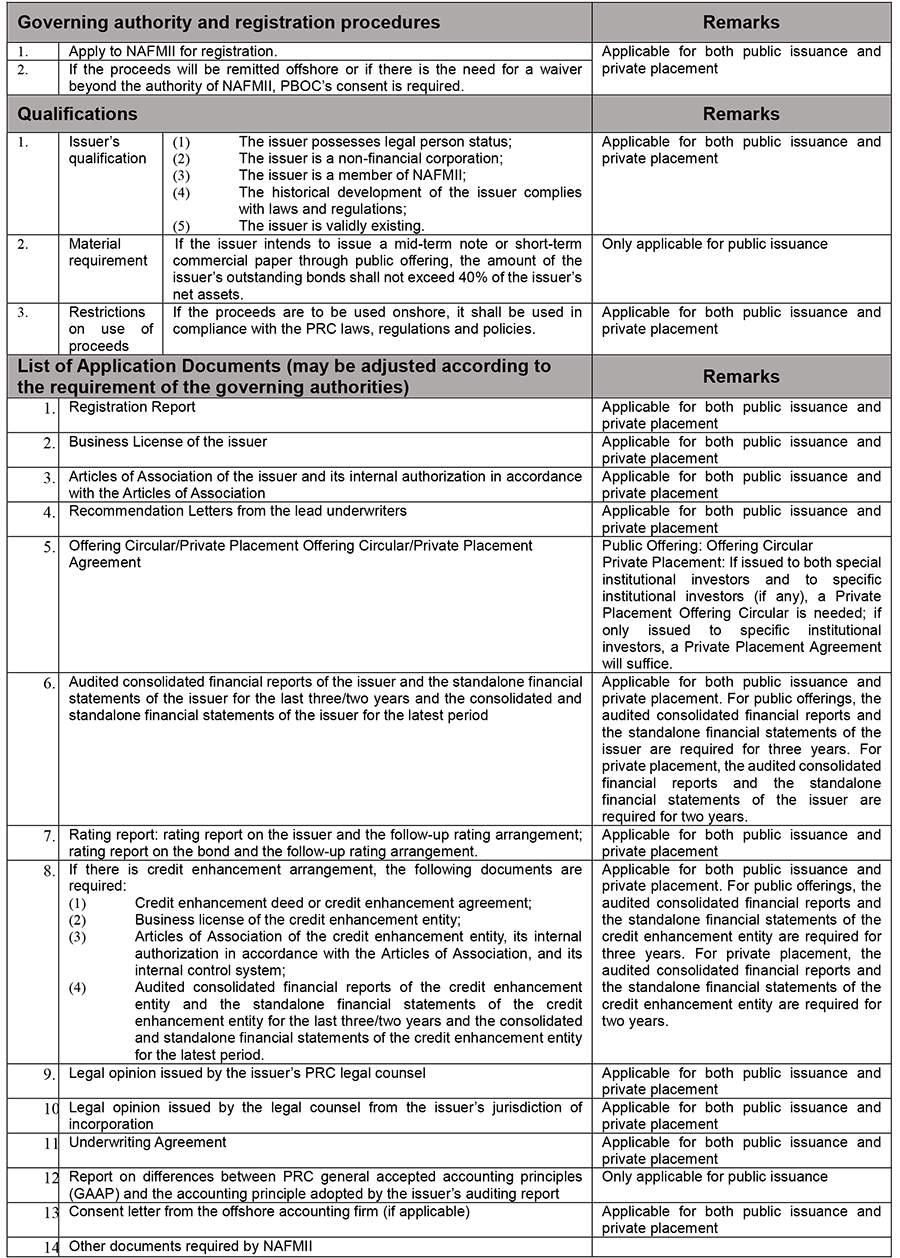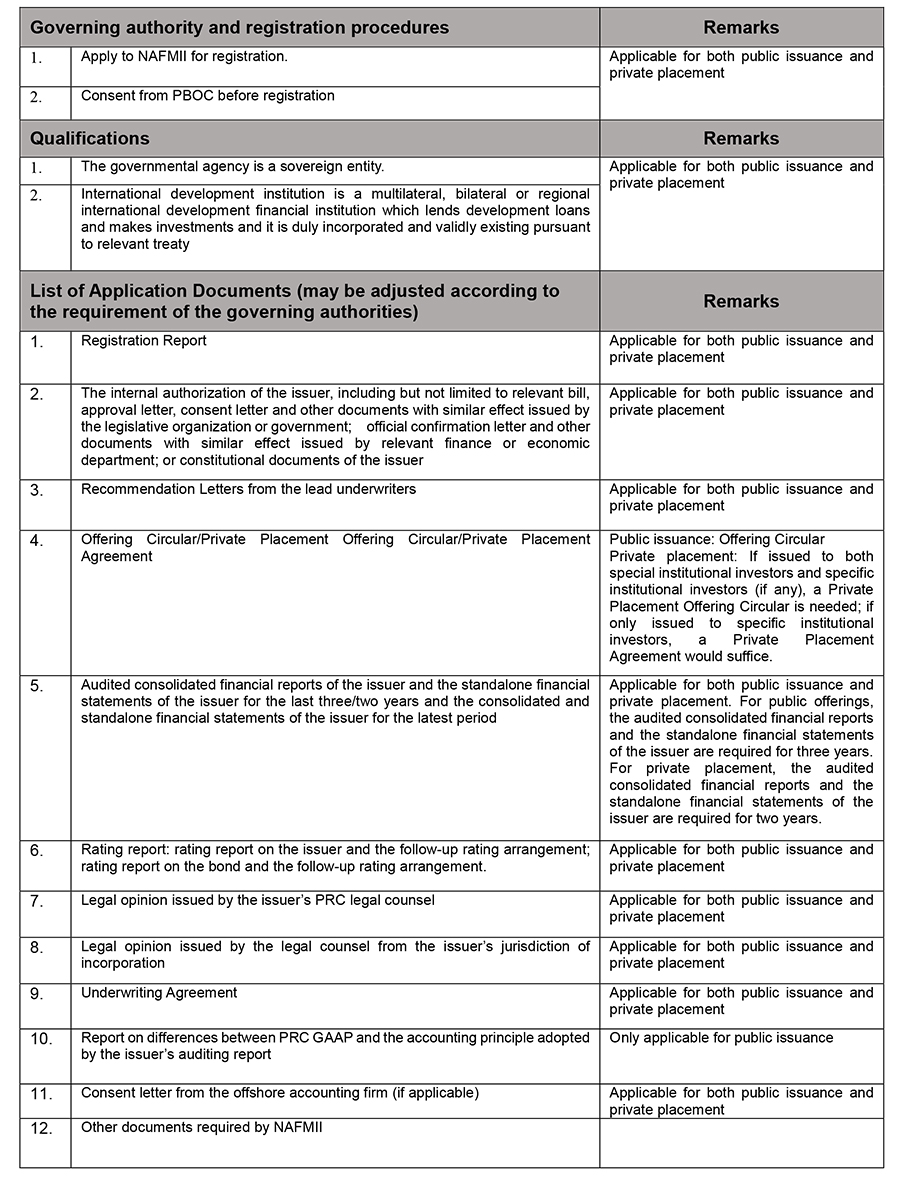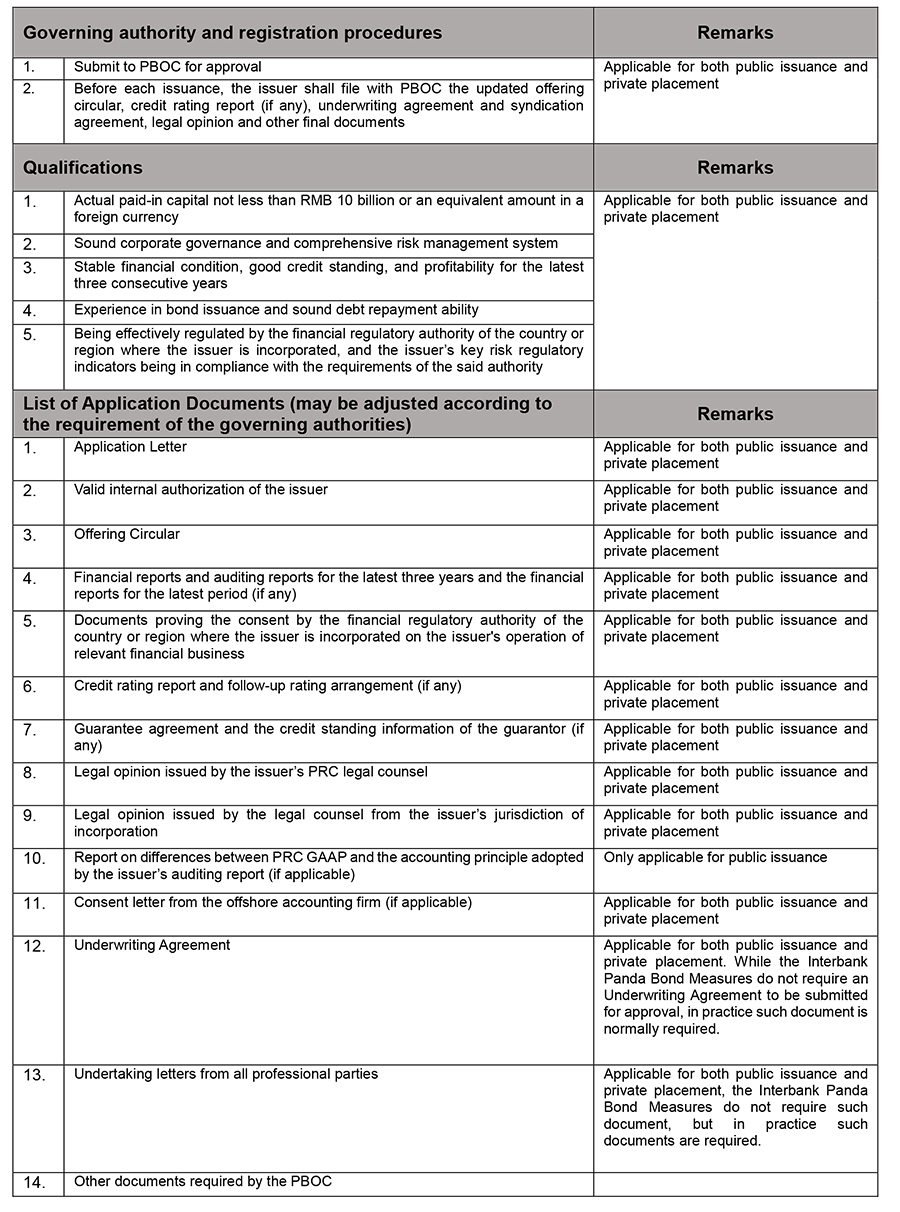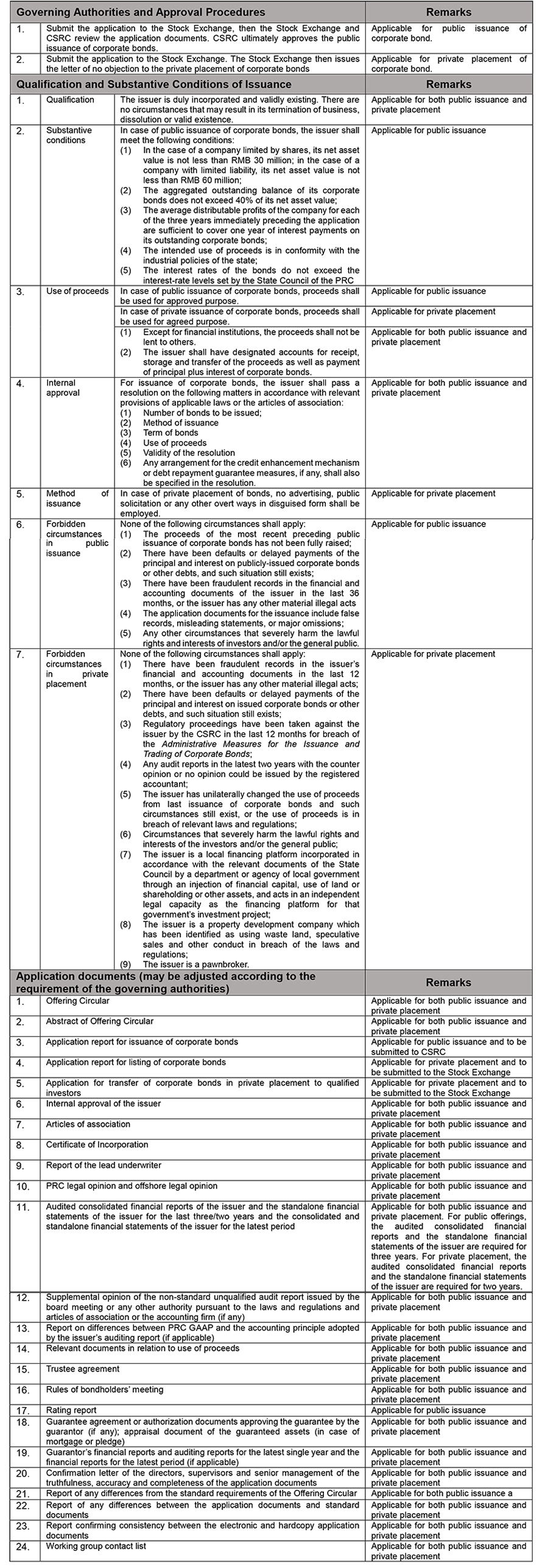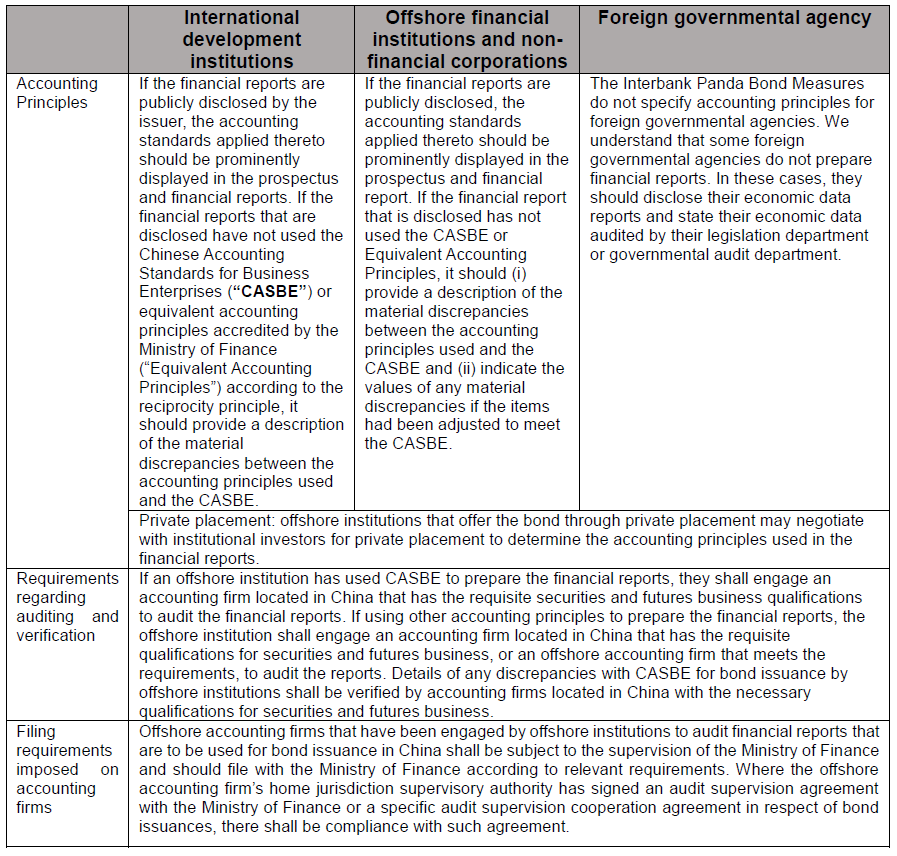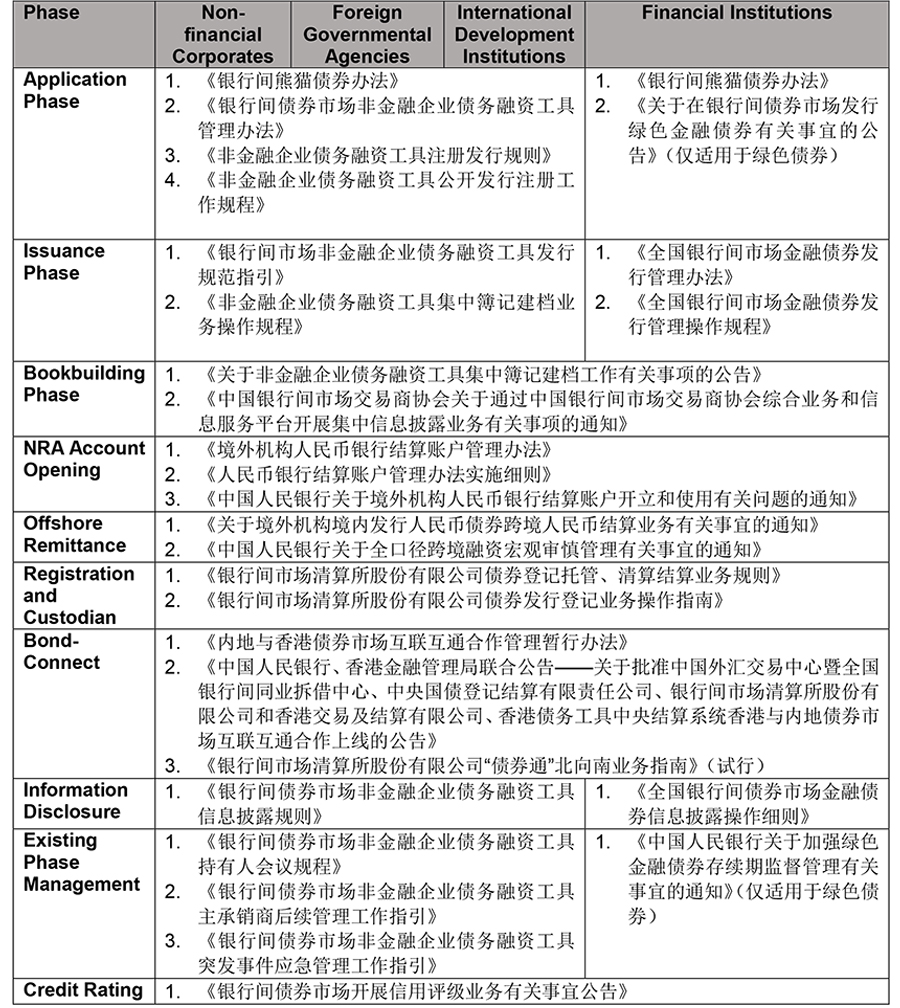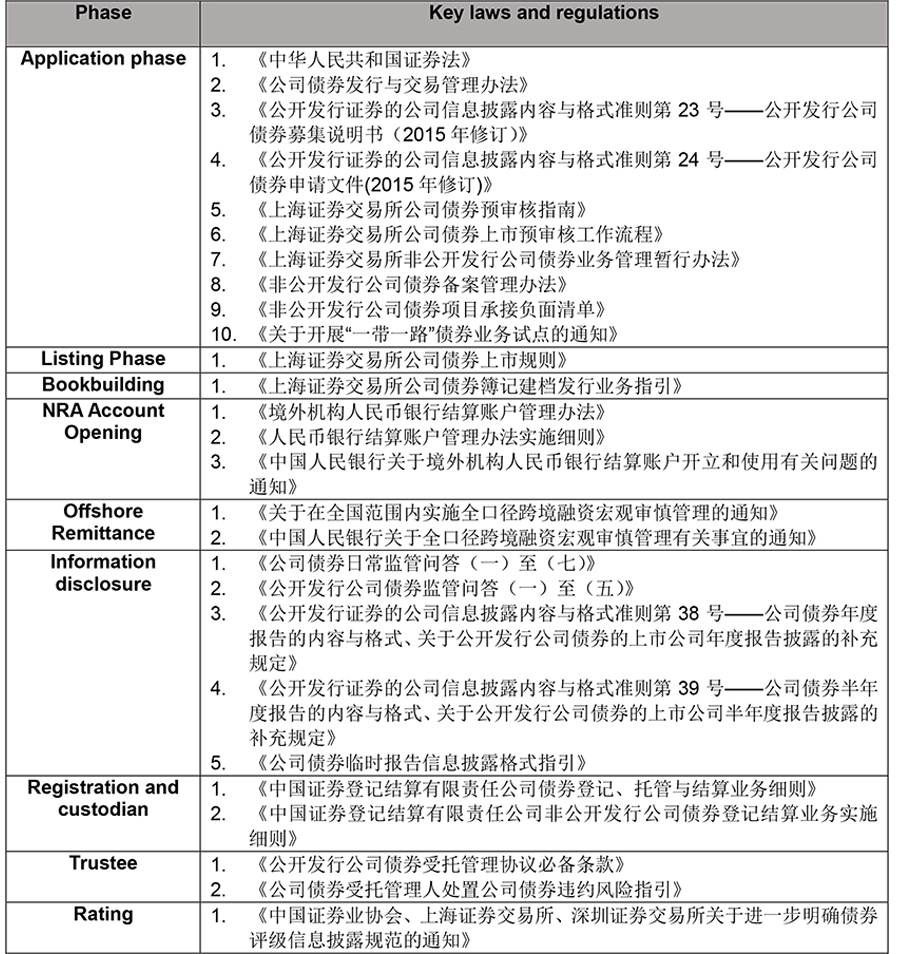28 November, 2018
On September 8, 2018, the People’s Bank of China (the “PBOC”) and the Ministry of Finance jointly promulgated the Interim Measures of the Administration of Offshore Institutions’ Bond Offering in National Interbank Bond Market (the “Interbank Panda Bond1 Measures”). The Interbank Panda Bond Measures and the Notice on Launching the Pilot Program of the Belt and Road Bonds (the “Notice on Stock Exchange Panda Bonds”) promulgated by the Shanghai Stock Exchange and Shenzhen Stock Exchange (collectively, the “Stock Exchanges”) in March 2018 constitute the main legal sources for offshore institutions’ Panda Bond offerings on the interbank bond market and stock exchange bond market respectively. These two regulations together with the interbank bond market rules promulgated by the PBOC, the National Association of Financial Market Institutional Investors (“NAFMII”) and other stock exchange bond market rules promulgated by the China Securities Regulatory Commission (the “CSRC”) and stock exchanges form the preliminary legal framework for Panda Bonds. We understand that NAFMII is drafting the guidelines for the registration and issuance of bonds by foreign governmental agencies, international development agencies and non-financial corporations on the national interbank bond market. With the release of such guidelines, the legal supervision system of Panda Bonds will be more complete. Please refer to Appendix I for the detailed laws and regulations applying to Panda Bonds.
Based on the latest legislation, and our previous experience on relevant projects, we have summarized the key procedures and issues when applying for Panda Bonds issuance in this article.
I. General Procedures for Issuing Panda Bonds on the Interbank Bond Market
1. Non-financial corporate issuers
Please click on the table to enlarge.
2. Foreign governmental agency and international development institution issuers
Please click on the table to enlarge.
3. Financial Institution issuers
Please click on the table to enlarge.
II. General Procedures for Panda Bonds Issuance in the Stock Exchange Bond Market
Pursuant to the Notice on Stock Exchange Panda Bonds, national or regional governmental agencies, non-financial corporations and financial institutions within the “Belt and Road” region can apply to the Stock Exchange for the issuance of “Belt and Road” Panda Bonds. Currently, all Panda Bonds issuers in the stock exchange bond market are non-financial corporations; to date, no financial institution, governmental agency or international development institution has issued Panda Bonds on the stock exchange bond market. We understand that the following list applies to both non-financial corporations and to financial institutions. However, with the exception of the “Belt and Road” Panda Bonds, the qualification of issuers and substantive conditions of issuance for foreign governmental agency issuers and international development institution issuers remain to be further clarified by the Stock Exchange.
Please click on the table to enlarge.
III. Key Issues for Panda Bond Issuance Applications
1. Accounting principles and auditing
The requirements regarding the accounting principles and auditing applicable to international development institutions, foreign governmental agencies, offshore financial institutions and non-financial corporates, and the filing requirements for offshore accounting firms as specified in the Interbank Panda Bond Measures are as follows:
Please click on the table to enlarge.
Differences in the accounting principles adopted by Panda Bond issuers and CASBE have been a long-running obstacle deterring many potential Panda Bond issuers. Prior to the promulgation of Interbank Panda Bond Measures, the only accounting principles that had been accredited by the Ministry of Finance as being equivalent to CASBE were the International Financial Reporting Standards adopted by EU listed companies for their consolidated financial reports, and the Hong Kong Accounting Standards for Business Enterprises. Since there are only a limited number of Panda Bond issuers using these equivalent account principles, many potential Panda Bond issuers put their issuance plans on hold. The Interbank Panda Bond Measures allow issuers using non-equivalent accounting principles to apply for public issuance if they provide relevant supplementary information; issuers who find it difficult to provide such supplementary information may choose private placement as an alternative.
2. Panda Bond Tax Issues
(1)Income tax
Only when the issuer and the investor are both non-PRC resident enterprises can bond interest be exempted from PRC enterprise income tax. For any income earned through the transfer of bonds, if the investor is a PRC resident enterprise, such investor is required to pay Chinese enterprise income tax. It should be noted that if the offshore investor is registered outside of China but has de facto management bodies in China, such investor will still be treated as a PRC resident enterprise and will thus be subject to Chinese enterprise income tax.
(2)Value-added tax
Under PRC value-added tax law, an offshore investor’s transfer of Panda Bonds constitutes a financial product transfer service. If the transferee is located outside of China, the offshore investor’s income earned from such transfer is not subject to PRC value-added tax. If the transferee is located within China, the offshore investor’s income earned from such transfer is subject to PRC value-added tax. Certain offshore investors accredited by the PBOC may be exempt from such value-added tax.
For further details on Panda Bond-related tax matters, please refer to a previous JunHe Bulletin that addresses Tax Analysis of Offshore Investors’ Investment in Panda Bonds, available at http://www.junhe.com/law-reviews/706
When issuing bonds, Panda Bond issuers should also consider the tax laws and regulations of their home country or jurisdiction.
3. Governing Law and Dispute Resolution
The Interbank Panda Bond Measures do not explicitly detail the applicable laws or dispute resolution mechanisms for Panda Bonds. Panda Bond issuers unfamiliar with PRC laws but with extensive experience offering bonds on international capital markets may assume that they can apply non-PRC regulations as the applicable laws and arbitration option should a dispute arise in the course of Panda Bond issuance.
However, based on the current practice, even though the Interbank Panda Bond Measures do not explicitly detail the applicable laws or dispute resolution mechanisms, the competent authorities still require the transaction documents of Panda Bond issuance to be governed by PRC law and for the resolution of any dispute, including the litigation and arbitration, to be resolved in China.
4. Guarantee Structure
In order to differentiate the group’s business activities from their financing activities, for the purposes of financing, some corporate groups may establish a special-purpose vehicle (“SPV”) on international markets. The SPV acts as the issuer, the parent company provides a joint liability guarantee for its bond issuance and the proceeds are for the group’s business operations. These issuers may wish to adopt the same guarantee structure when issue Panda Bonds in China.
While the Interbank Panda Bond Measures do not specify the option for the above-mentioned guarantee structure, we understand that under certain circumstances, such guarantee structure could possibly be adopted for a bond issue. Since in this structure, the issuer is solely reliant upon the guarantor’s credit to issue bonds, any requirements showing the issuer’s qualifications, their application documents and information disclosure will be equally applicable to the guarantor.
In addition, the proceeds raised by non-financial institutions should not be used as loans to other entities. Under the guarantee structure, proceeds are not normally used by the issuer itself or by its consolidated subsidiaries. Instead, the proceeds are used by the guarantor (generally the parent of the issuer) or the guarantor’s consolidated subsidiaries (i.e. the sister companies of the issuer). There is a need for further clarification from the governing authorities as to what will be the requirements for proceeds loaned to the parent or sister companies.
5. Issuers of Panda Bonds on the Stock Exchanges
Pursuant to the Notice on Stock Exchange Panda Bonds, foreign governmental agencies, non-financial corporations and financial institutions may apply to the Stock Exchanges to issue Panda Bonds.
Currently, all issuers of Panda Bonds on the Stock Exchanges are offshore non-financial corporations.
To date, no offshore financial institution has offered Panda Bonds on the Stock Exchanges, and there are no prevailing laws and regulations to prevent them from doing so. However, in practice, since financial institutions mainly issue bonds on the interbank bond market and the use of proceeds requires pre-approval from the PBOC, if an offshore financial institution plans to issue Panda Bonds on the Stock Exchanges, it should discuss in advance the feasibility of an issuance with the PBOC, the CSRC and the Stock Exchanges.
6. Division of Legal Work on Panda Bond Projects
Given that all issuers of Panda Bonds are registered offshore, there will likely be multiple law firms providing legal advice to the issuer. In those cases where the issuer’s place of registration and the place of listing are in different jurisdictions, there could be up to five or more law firms involved, including the issuer’s PRC legal counsel, their international legal counsel, the legal counsel from the issuer’s jurisdiction of incorporation (or internal legal counsel) (the “Local Legal Counsel”), the legal counsel in their place of listing and the underwriter’s PRC legal counsel. In order to manage the legal activities on Panda Bond issues, there would generally be two law firms involved, i.e., the issuer’s PRC legal counsel and their Local legal counsel. Please refer to Appendix II of this article for more details on the responsibilities and division of work among the relevant law firms.
Appendix I
Major Laws and Regulations applicable to Panda Bonds
1. Interbank Bond Market
In addition to the Interbank Panda Bond Measures, the following current regulations and rules also apply to the various types of issuers on the interbank bond market:
Please click on the table to enlarge.
2. Stock exchange bond market
The following CSRC regulations apply to corporate bonds for all types of issues. The Shanghai Stock Exchange regulations are provided as an example here. There are also relevant regulations for the Shenzhen Stock Exchange.
Please click on the table to enlarge.
Appendix II
List of Division of Work amongst Legal Counsels for Panda Bond Issuances
Under the assumption that the issuer would need both English and Chinese versions of the transaction documents, we have summarized the list of tasks and responsibilities, divided amongst the issuer’s PRC legal counsel, the issuer’s international legal counsel, the issuer’s Local Legal Counsel and Joint Lead Underwriter’s (JLU’s) PRC legal counsel based on the market practice.
Points to note:
1. In the scenario that the issuer is a foreign governmental agency or an international development institution, the issuer’s Local Legal Counsel work could be undertaken by the issuer’s internal legal counsel.
2. In practice, the issuer’s international legal counsel and their Local Legal Counsel may actually be branches of the same law firm, but with offices in different jurisdictions; where the international legal counsel is not engaged by the issuer, any work that is the responsibility of the issuer’s international legal counsel could be undertaken by the issuer’s PRC legal counsel.
3. Publicly-listed issuers will need to engage legal counsel from the jurisdictions of both its incorporation and listing place.
4. In practice, the JLU may not engage PRC legal counsel as their internal control department and the legal department of some JLUs may not require the JLU to engage PRC legal counsel.
Division of Work
Please click on the table to enlarge.
YU, Yongqiang (YY) , Partner, Jun He
yuyq@junhe.com

.jpg)

